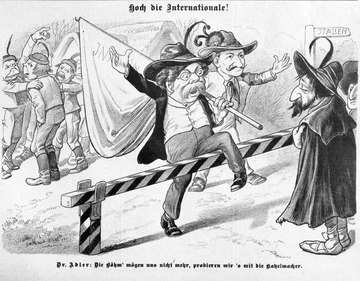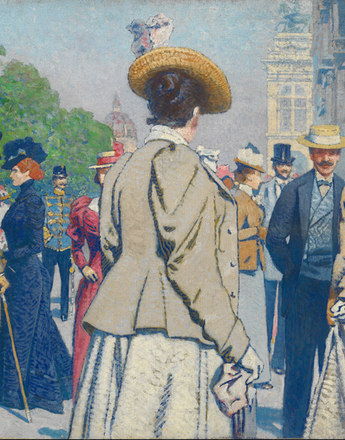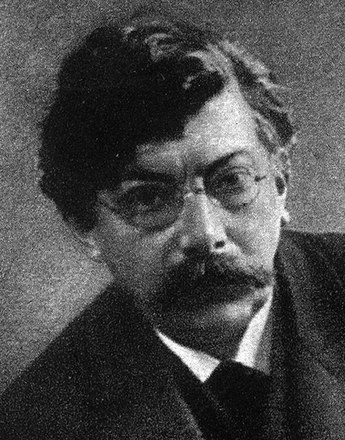The Hainfeld party conference was held at the turn of the year 1888/89, and achieved the unification of the different ideological movements within social democracy, which was now able to present itself to the public with a single political programme.
At the turn of the year 1888/89, 110 delegates from 13 Crown Lands came to Hainfeld in order to attend the Social Democrats' unification party conference. Victor Adler, who as late as 1882 had still been working with the German Nationals on the Linz Programme but had been repulsed by the anti-Semitic tones of Georg von Schönerer, succeeded over the following two decades in turning the Social Democrats into a major political player. As its most important organ, he founded the Arbeiter Zeitung newspaper in 1889, which was to continue in circulation for over 100 years. The focus of Social Democratic policies was on mobilising the industrial workers and forming them into a political class.
The declaration of principles adopted at the Hainfeld party conference stated: "Organising the proletariat politically, filling it with an awareness of its situation and its function, rendering and maintaining it intellectually and physically capable of fighting is thus the true programme of the Social Democratic Workers' Party in Austria."
The Social Democrats gradually developed into a mass party with a structured organisation and a broad base. Mass assemblies and general strikes became popular instruments of its political culture. Thanks to the close cooperation with the worker education associations, the cooperatives and trade unions, the first of which had been founded as far back as 1868, the Social Democratic Workers' Party became a classical member-based party around the turn of the century (with around 120,000 party members alone in the Austrian half of the Empire). Its supporters came from the blue-collar sector as well as from white-collar and intellectual circles, and were linked to the party by means of numerous front organisations.
Its political agenda was dominated by the demand for the statutory adoption of the eight-hour working day and the introduction of universal suffrage. Its slogan in the 1900 election campaign was: "Universal, direct and equal suffrage! National autonomy! Free alliance of all peoples! Combat the exploitation, servitude and stultification of the people!" Finally in January 1907, universal, direct and equal suffrage for men was adopted, which led to a considerable increase in votes for the Social Democrats in the Reichsrat elections held in May. With 87 seats (of which 50 German), it constituted the party with the largest number of votes in the House of Deputies until the Christian Socials and the Clericalists merged to form the Christian Social Reich Party.
The escalating nationalities issue also became an increasing problem for the party, and for this reason it ultimately broke up into an association of individual national parties. The Czech Social Democrats split off in 1911, and in the elections that took place in the same year the Social Democrats were represented in three independent national parliamentary groups. "In this way," as Klaus Berchtold commented, "the national idea prevailed over the international idea of socialism."
Translation: David Wright
Buchmann, Bertrand Michael: Kaisertum und Doppelmonarchie, Wien 2003
Berchtold, Klaus: Österreichische Parteiprogramme 1868-1966, Wien 1967
Hanisch, Ernst: Österreichische Geschichte 1890-1990. Der lange Schatten des Staates. Österreichische Gesellschaftsgeschichte im 20. Jahrhundert, Wien 1994
Rumpler, Helmut: Österreichische Geschichte 1804-1914. Eine Chance für Mitteleuropa. Bürgerliche Emanzipation und Staatsverfall in der Habsburgermonarchie, Wien 1997
Urbanitsch, Peter: Die Nationalisierung der Massen, in: Das Zeitalter Kaiser Franz Josephs. 2. Teil 1880-1916. Glanz und Elend (Ausstellungskatalog der Niederösterreichischen Landesausstellung im Schloss Grafenegg), Wien 1987, 119-125
Ardelt, Rudolf G.: Sozialdemokratie und bürgerliche Öffentlichkeit. Überlegungen zum Hainfelder Parteitag, in: Ackerl, Isabella/Hummelberger, Walter/Mommsen, Hans (Hrsg.): Politik und Gesellschaft im alten und neuen Österreich. Festschrift für Rudolf Neck zum 60. Geburtstag. Bd. I, Wien 1981, 214-238
Wandruszka, Adam: Österreichs politische Struktur. Die Entwicklung der Parteien und politischen Bewegungen, in: Benedikt, Heinrich (Hrsg.): Geschichte der Republik Österreich, Wien 1977, 289-486
Wandruszka, Adam: Die Habsburgermonarchie von der Gründerzeit bis zum Ersten Weltkrieg, in: Das Zeitalter Kaiser Franz Josephs. 2. Teil 1880-1916. Glanz und Elend (Ausstellungskatalog der Niederösterreichischen Landesausstellung im Schloss Grafenegg), Wien 1987, 4-19
Quotes:
"Organising the proletariat politically …“: Prinzipienerklärung, quoted from: Ardelt, Rudolf G.: Sozialdemokratie und bürgerliche Öffentlichkeit. Überlegungen zum Hainfelder Parteitag, in: Ackerl, Isabella/Hummelberger, Walter/Mommsen, Hans (Hrsg.): Politik und Gesellschaft im alten und neuen Österreich. Festschrift für Rudolf Neck zum 60. Geburtstag. Bd. I, Wien 1981, 217 (Translation)
"Universal, direct and equal suffrage! …“: Wahlkampfparole, quoted from: Berchtold, Klaus: Österreichische Parteiprogramme 1868-1966, Wien 1967, 26 (Translation)
"In this way …“: Berchtold, Klaus: Österreichische Parteiprogramme 1868-1966, Wien 1967, 28 (Translation)
-
Chapters
- Preconditions and beginnings of political participation
- On the road to political participation
- Liberalism and conservatism
- The rise and fall of liberalism
- Workers unite!
- Party of the masses
- Between a truce policy and left-wing radicalism
- Karl Lueger and the "Sausage Pot Party"
- "The Colossus of Vienna"
- Rise and fall
- Commitment to the Monarchy
- "Greater German", "Smaller German" or "German National"?
- "German and loyal, outright and true"
- "Prussian plestilence" or Habsburgophilia
- The battle for the 'national electorate'






